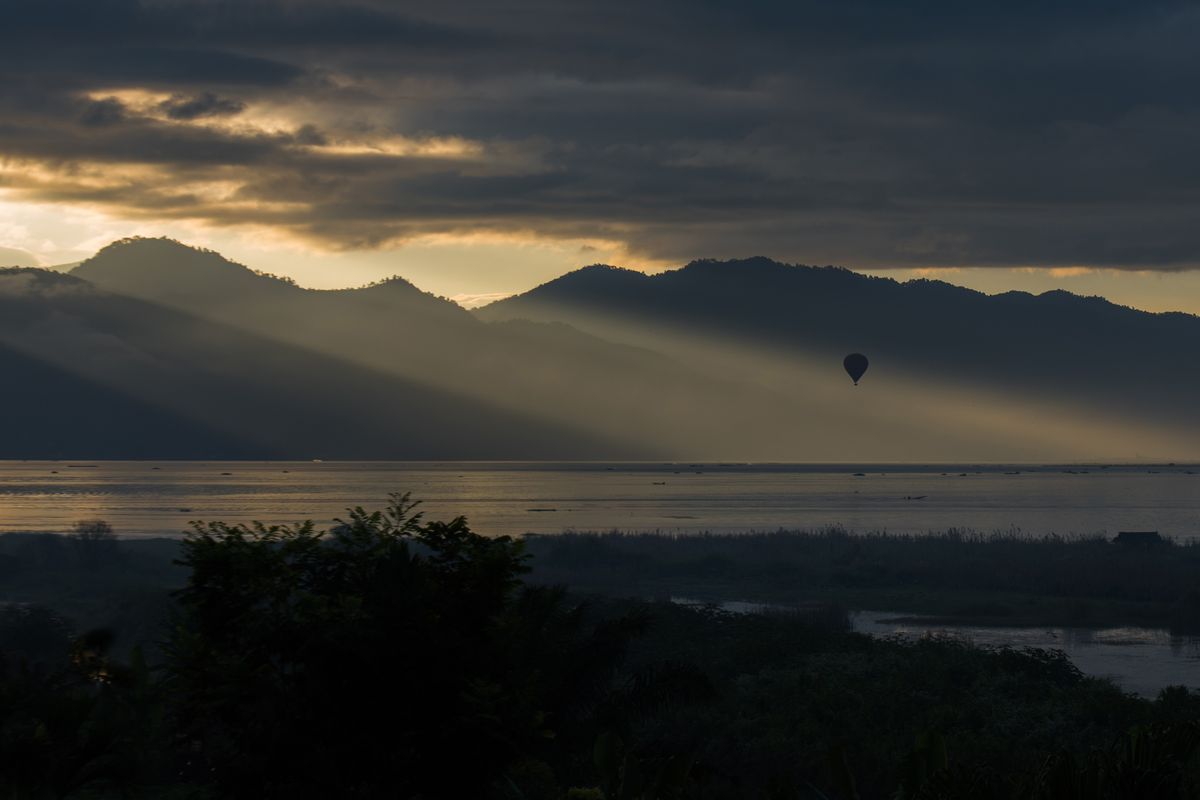Meaningful travel in Myanmar
by Gemma

The recent plight of thousands of Rohingya Muslims fleeing persecution by the Burmese military brought the disunity within Myanmar to the attention of the international community. However political crisis and ethnic conflict in Myanmar are unfortunately nothing new: the country has suffered from a long history of civil division due to its wide diversity of ethnic and religious groups.
 ‘We have spent many years travelling and operating in the country and recognise that the political situation is incredibly complex and raises deep ethical questions. We understand that travellers are questioning whether a visit to Myanmar will hinder or help, and whether it’s safe or ethical to travel there.
‘We have spent many years travelling and operating in the country and recognise that the political situation is incredibly complex and raises deep ethical questions. We understand that travellers are questioning whether a visit to Myanmar will hinder or help, and whether it’s safe or ethical to travel there.
Since opening its doors to foreign visitors, Myanmar has witnessed vast positive developments within the tourism sector. An increase in visitor numbers has inspired many families to open their own guesthouse or restaurant, and communities to work together on tourism initiatives that go some way to preserving the country’s culture and heritage. At the other end of the scale, the opening of international branded hotels has brought much-needed employment opportunities, English-language and hospitality training to the major cities. A slump in visitors will most certainly have an impact on the home-grown projects that rely heavily on foreign visitors for an income.
We’re firm believers in travelling as an informed responsible tourist, and if you are considering a visit to this fascinating country, we would encourage you to delve beneath the headlines and research for yourself. There are a number of informative books and articles we can recommend if you’re keen to understand more.
How can I travel in the right way?
We certainly don’t consider it our place to say whether or not you should go. However, if you do decide to visit Myanmar, there are ways that your visit can make a genuine difference. We feel passionately that your presence (and, bluntly speaking, your cash) can be used as a force for good, and that your focus should be on travelling the right way. When Myanmar opened up to commercial tourism, the military junta owned most of the hotels and tourism infrastructure, making it difficult for visitors to ensure their money ended up in the hands of the local people, as opposed to financially supporting the corrupt government. This has since changed, and government-owned properties are easier to avoid. Despite the unpredictable future, there are an incredible number of inspirational grass root projects making a real difference in Myanmar; tourism initiatives that are impacting positively on local communities and the environment, and relieving poverty for hundreds of thousands of people. We are hugely excited about these, and if you do decide to visit Myanmar and want to make a difference, these are the places that we will encourage you to visit.
The last few years alone have seen an increasing number of community-focused projects developing in more off-the-beaten track destinations, bringing opportunities to these remote regions. Loikaw, capital of Kayah State, was off limits to tourists for decades due to civil unrest, and has only recently become accessible to visitors. This diverse and picturesque region is home to the largest concentration of ethnic groups anywhere in Myanmar. With the support of the International Trade Centre (ITC) a handful of novice Loikaw tour operators participated in extensive training, off the back of which a tourist programme was implemented which focuses on the region’s unique culture and impressive natural assets. The close relationship these operators have with local villages assists with the communication and trust of the villagers, and they are able to source good quality, regional guides. Visitors have an exceptional opportunity to mingle with the locals (who are still a little shy of curious foreigners). Activities range from learning about the process of natural dyeing and chatting to local musicians, to trekking into the forest, and a hands-on Kayah sausage making experience. The project has been operating in Kayah State for four years, bringing job opportunities and boosting incomes alongside preserving cultural heritage in a sensitive manner.
Following the success of the Loikaw initiative, the ITC has recently announced their involvement in a second project in Myanmar’s southernmost state of Tanintharyi. This is where you’ll find the Mergui Archipelago: a picture-postcard area of 800 virtually deserted islands. Besides pristine off-shore islands, the region has other places of untapped interest that are not on the tourist radar. The capital of Dawei is dotted with interesting colonial-era buildings and historical pagodas; the surrounding villages offer potential for developing cultural tours focusing on traditional life. Using Kayah State as a template, the ITC are working with communities in the region to sensitively develop a tourist programme which will showcase the history, culture and natural beauty of the region through community visits and hands-on activities. Watch this space…
One of the responsible tourism projects we are most excited about is Arakan Nature Lodge, which opened in October 2017 in the remote beachfront village of Zikhone in South Rakhine. Billed as Myanmar's ‘first true eco lodge’ it was constructed using recycled wood and sustainable local materials; the resort runs completely on solar power, toilets are of the dry-composting variety, and 'greywater' from the kitchen is reused for purposes where pristine water isn't necessary. Guest experiences explore but have no detrimental impact on the lodge's unspoilt natural surroundings of forested hills, mangroves and untouched, clean beaches. South Rakhine is one of the poorest regions of the country, and inspirational Swiss owner Ueli Morgenthaler is passionate about creating job opportunities amongst the local community, actively recruiting and training staff from nearby villages. You can be confident that the money you spend during your stay goes directly into the hands of the local people.
If it's your first visit to Myanmar, you may not be planning to head into the more remote regions, but there are equally exciting projects you can support in the country's main tourist destinations.
According to our local team one of the best community-focused tourism projects in Myanmar is the Hsithe Irrawaddy Dolphin Experience. The critically endangered Irrawaddy Dolphin can only be found in three of the world's rivers, including the Ayeyarwady in Myanmar, and its numbers are rapidly diminishing. The dramatic decline in dolphin numbers has had a knock-on effect on the riverside fishing communities, many of whom have learnt to fish cooperatively with the dolphins through a series of signals and calls. Set up by the UK-based Harrison Institute in the village of Hsithe (three hours from Mandalay), this dolphin conservation project works closely with local fishermen, using their knowledge of the river, to offer tourists the opportunity to spot Irrawaddy Dolphins. Visitors also spend time exploring Hsithe and nearby villages, learning about the region’s cottage industries and generally witnessing day-to-day life in these riverside communities. More than just a dolphin preservation programme, this initiative brings essential monetary support to the local people. It has been so successful in the two years of operation that funds have been reinvested into building a simple guesthouse in Hsithe which will open at the beginning of 2019, bringing much-needed employment opportunities to the region as well as financial benefits.
A cooking class is an experience on many people’s holiday hit list, and we partner with a number of excellent cooking schools throughout Asia. However, by joining a cooking class at Three Good Spoons in Yangon, you're doing more than simply creating a (hopefully) delicious Burmese meal under the watchful guidance of chef Kevin, a former private chef who worked for the US ambassador in Myanmar for 25 years. As well as hands-on cooking experiences for tourists, this social enterprise offers fee-based classes aimed at housekeepers and domestic helpers who wish to improve their kitchen skills and nutrition knowledge. Any profit generated goes towards funding free hygiene, nutrition and cooking classes for unemployed and disadvantaged women in Yangon.
At the north end of Inle Lake, not too far from the town of Nyaung Shwe, you'll find A Little Eco Lodge. This aptly named family-run property is built along eco-tourism principles: the lodge was constructed from locally sourced natural materials; the home-cooked meals served in the restaurant use seasonal ingredients that are grown in their organic garden. But it's more than just a welcoming, eco-friendly place to stay, and plays an important role in the local community. The lodge staff are recruited from the surrounding communities, given extensive on-the-job training and actively encouraged to develop their skills in the hospitality industry. Alongside the accommodation the lodge operates ‘A Little Loom’ weaving centre, providing much needed income for local women as well as preserving traditional Shan state weaving designs and techniques. If that’s not enough to tempt you to visit, they operate one of our favourite culturally immersive travel experiences: the Hide & Seek cooking class. Armed with a shopping list and a few basic Burmese words, and with no guide to assist in communication, you’re sent into the local village to source the ingredients needed to prepare lunch. It’s a challenge, a learning experience, and a lot of fun.’
For further information, speak to one of our Myanmar Specialists on +44 (0)1273 670 001.
by Gemma on 19th December 2018